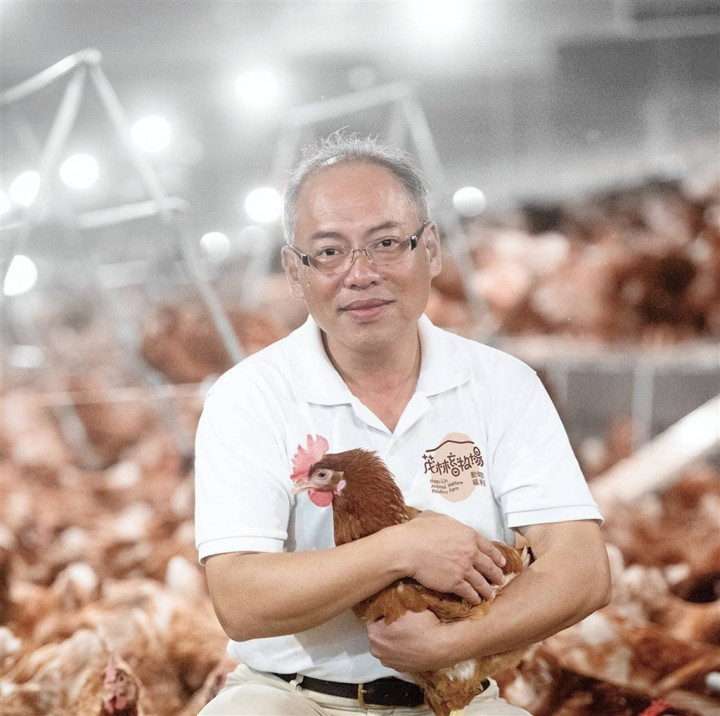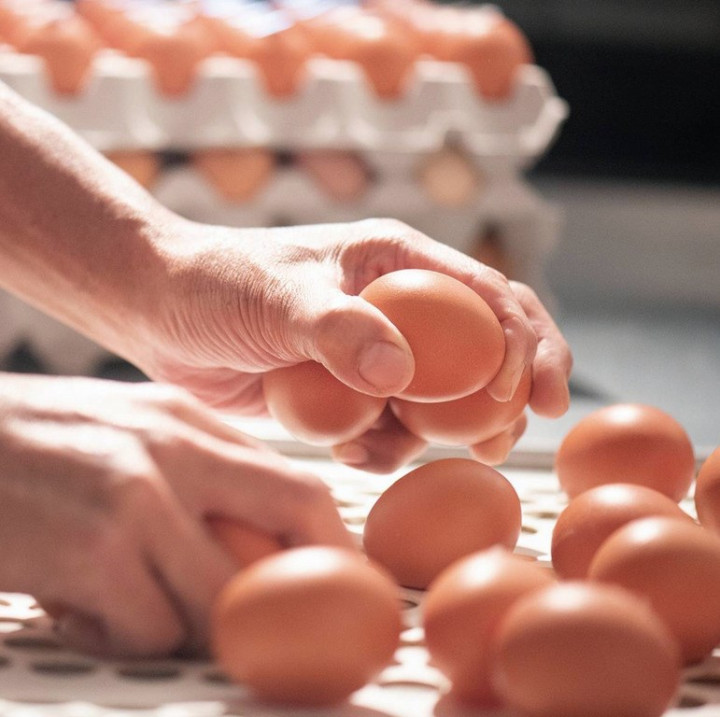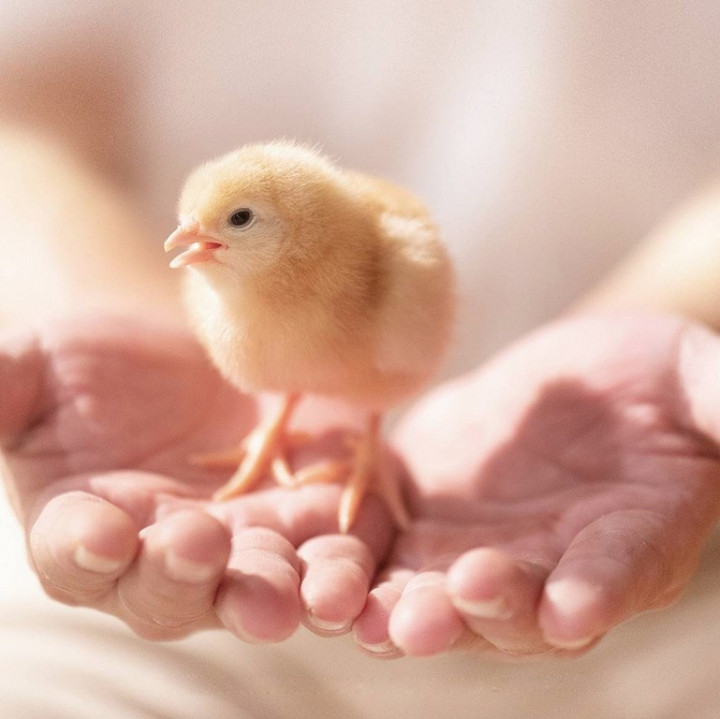


Eric Lin's (林智傑) five-hectare farm in Miaoli was one of the first in Taiwan to start supplying major supermarket chains in the country with locally produced cage-free eggs in 2018.
Three years later, Lin is facing stiff competition from big companies that have since entered the market for the supply of barn-laid eggs, as they are also called.
"It is difficult for small farmers like me to compete against them," he said. "But what counts is the love and care we give to our chickens."
While Lin's farm in Miaoli's Zaociao Township did not start out as a cage-free egg farm, a series of circumstances led the owner to move in that direction.
When he took over management of the farm from his elderly father in 2015, it was a broiler poultry farm. But Lin soon became aware that his younger sister was having a problem with one aspect of the business.
"Every time she learned that broilers were about to be slaughtered, she would get so upset, she'd lock herself in her room for a week," Lin said. "That prompted me to reflect on the concept of 'happy farming' and led to the change from raising meat birds."
That decision required the construction of new facilities, including laying nests in the five barns on the farm, as well as dust baths for the hens, which help to keep them clean and free from mites, lice and other parasites, without the use of pesticides.
The barns also had to be fitted with new equipment for climate control, which had to be imported.
Following the conversion of the business from broiler poultry to layer chicken farming, Lin struggled financially for the next three years, racking up total losses of more than NT$10 million (US$357,000).
"Those were huge losses for me, but I refused to stay down," he said. "I was determined to keep my promise to my mother before she died that I would help my father manage the farm."
Lin said he was raising about 55,000 hens on a farm that could accommodate 285,000 if they were caged.
There are several advantages to cage-free farming, however, including fewer defective eggs, compared to those produced on cage farms, he said.
The turning point for Lin's farm came when it attracted the attention of the Environment & Animal Society of Taiwan (EAST), a non-profit, non-governmental organization that was founded in 1999.
During several visits to Lin's farm, members of the organization realized that he shared the same ideals as EAST, as his cage-free egg farming methods took into consideration animal welfare, human health and nutrition, biodiversity, environmental protection, and food safety.
Through EAST, Lin began in 2018 to sell eggs to 120 outlets of the major supermarket chain Carrefour Taiwan, becoming one of the first and few suppliers of locally produced cage-free eggs in the country at the time.
Soon, other big retail chains like PX Mart, and Family Mart began ordering eggs from Lin's farm, and he also started supplying farmers' associations and on-campus stores in northern and central Taiwan.
As demand for Lin's cage-free eggs grew, the farm recovered from its losses and turned profitable in 2019. Over the past three years, Lin said, he has seen a 300 percent growth in increasing sales, and the farm now produces 14 million barn-laid eggs per year.
The eggs are purchased directly by the retail chains and other buyers, without going through a distributor, and those retailers now absorb 100 percent of the farm's supply, compared to 10 percent when they first started placing orders, he said.
In general, consumer demand for cage-free animal products has been growing in Taiwan, driven in part by an awareness campaign in the European Union.
In August, Carrefour Taiwan announced that it would stock only "non-cage" eggs, starting in 2025, in line with a pledge by the European Commission to introduce new legislation to phase out cages in EU animal farming by 2027.
As a first step towards its cage-free goal, Carrefour Taiwan in early 2018 began encouraging its egg suppliers to obtain EAST certification, so that their eggs could carry the logo of the Cage Free Alliance, an affiliate of EAST.
According to Carrefour Taiwan, sales of its non-cage eggs have grown 40 percent over the past year, although they cost about 20 percent more than cage eggs.
The hypermarket attributed the increased sales to greater public awareness of animal farming practices and also higher demand for quality eggs, as more people have been cooking at home during the COVID-19 pandemic.
Currently, there are around 43 million laying hens on Taiwan farms, which produce 8.1 billion eggs per year, and 85 percent of the layers are housed in battery cages, according to EAST.
Among the farmers who own the other 15 percent, there is keen competition for a share of the cage-free egg market, but Lin said he is holding his own while sticking to his principles.